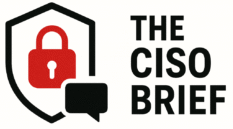Quick Takeaways
-
False Alarm: The Arkana Security gang falsely claimed to have stolen new Ticketmaster data; instead, they listed data from the 2024 Snowflake data theft attacks, causing confusion and concern.
-
Previous Breach Confirmation: BleepingComputer verified that the files shown in Arkana’s post matched previously leaked Ticketmaster data from the Snowflake incident, where several organizations were targeted using compromised credentials.
-
Extortion Tactics: The threat actors ramped up their extortion attempts by showcasing stolen ticket information and leveraging the notoriety of past breaches, including those linked to ShinyHunters and the PowerSchool data breach.
- Unclear Origins: The origin and ownership of the data listed by Arkana remain ambiguous as the group’s affiliation with ShinyHunters and the potential acquisition of the data is still under investigation.
Problem Explained
In a recent incident involving the Arkana Security extortion gang, a post emerged over the weekend that falsely suggested the group was peddling newly stolen data from Ticketmaster. Instead, the alleged data—over 569 GB worth—was determined to originate from the 2024 Snowflake data theft attacks, a series of breaches that impacted numerous organizations, including Ticketmaster, AT&T, and Neiman Marcus. BleepingComputer, a cybersecurity news outlet, conducted an investigation that confirmed the files in question matched samples from the earlier breaches, particularly pointing out an image caption referencing a reconnaissance tool known as RapeFlake, used by the threat actors for data exfiltration.
The situation underscores the ongoing ramifications of the Snowflake attacks perpetrated initially by a group known as ShinyHunters, who exploited compromised credentials to abscond with sensitive company data, including personal and ticketing information from Ticketmaster. Although Arkana did not clarify their connection to the data, the evidence suggests they were attempting to re-sell previously stolen information. Following their initial data listing, it was noted that Arkana removed the Ticketmaster entry from their leak site on June 9. BleepingComputer reached out to both Arkana and Ticketmaster for comments but received no response, leaving key questions about the incident’s origins and the motivations of the actors involved unanswered.
Risks Involved
The resurgence of the Arkana Security extortion gang, purportedly re-packaging previously pilfered Ticketmaster data from earlier Snowflake data theft attacks, poses an ominous threat to a broader spectrum of businesses, users, and organizations. Such subterfuge not only undermines trust in data security across industries but also creates a ripple effect of vulnerability, where organizations with interconnected systems may inadvertently expose sensitive data or become targets for similarly orchestrated extortion attempts. The specter of compromised credentials used in these attacks casts an unsettling pall over the efficacy of authentication measures, evoking concerns about customer confidence and potential legal ramifications stemming from inadequate data protection. As the menace of extortion groups like Arkana persists, businesses must grapple with not only the repercussions of their own data breaches but also the amplified risks posed by attackers exploiting historical vulnerabilities to fuel their schemes.
Possible Action Plan
Timely remediation in the context of stolen Ticketmaster data from Snowflake attacks is crucial to prevent further exploitation and safeguard sensitive information.
Mitigation Steps
- Incident Response Team Activation: Mobilize a dedicated team to manage the breach.
- Data Encryption: Ensure all sensitive data is encrypted both in transit and at rest.
- Access Controls: Review and tighten access privileges to limit exposure.
- User Notification: Inform affected users promptly to mitigate risk.
- Vulnerability Assessment: Conduct thorough scans to detect additional weaknesses.
- Threat Intelligence Integration: Employ intelligence to anticipate further attacks.
NIST CSF Guidance
The NIST Cybersecurity Framework underscores the importance of proactive measures in identifying, protecting against, detecting, responding to, and recovering from incidents. For more specifics, refer to NIST SP 800-61 on Computer Security Incident Handling for detailed protocols in incident management and remediation strategies.
Advance Your Cyber Knowledge
Discover cutting-edge developments in Emerging Tech and industry Insights.
Access world-class cyber research and guidance from IEEE.
Disclaimer: The information provided may not always be accurate or up to date. Please do your own research, as the cybersecurity landscape evolves rapidly. Intended for secondary references purposes only.
Cyberattacks-V1

